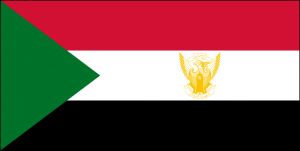Language/Sudanese-arabic/Grammar/Pronouns
Hi Sudanese Arabic learners! 😊
In today's lesson, we will be discussing the use of pronouns in Sudanese Arabic. Pronouns are an important part of any language, and understanding how to use them correctly is essential for speaking and writing in Sudanese Arabic. We will look at the different types of pronouns, how they are used, and some examples of their usage.
Types of Pronouns
Pronouns can be divided into two main categories: personal pronouns and possessive pronouns.
Personal Pronouns
Personal pronouns are used to refer to people or things. They can be either singular or plural, and they can be either masculine or feminine. The following table shows the personal pronouns in Sudanese Arabic:
| Singular | Plural | | -------- | ------ | | ana (I) | nahnu (we) | | anta (you) | antum (you) | | huwa (he) | hum (they) | | hiya (she) | hunna (they) |
For example, if you wanted to say "I am going to the store", you would say "ana a'al al-makhzan".
Possessive Pronouns
Possessive pronouns are used to indicate ownership or possession. They can also be either singular or plural, and they can be either masculine or feminine. The following table shows the possessive pronouns in Sudanese Arabic:
| Singular | Plural | | -------- | ------ | | li (my) | lina (our) | | lak (your) | lakum (your) | | lahu (his) | lahum (their) | | laha (her) | lahunna (their) |
For example, if you wanted to say "This is my book", you would say "hada kitab li".
Examples
Here are some examples of how pronouns are used in Sudanese Arabic:
- Ana a'al al-makhzan (I am going to the store).
- Anta qalbi (You are my heart).
- Huwa yomkin (He is possible).
- Hiya mohtarama (She is respected).
- Lina al-makhzan (Our store).
- Lakum al-kitab (Your book).
- Lahum al-mara (Their woman).
- Lahunna al-rihla (Their journey).
If you have any questions, please ask them in the comments section below.
Feel free to edit this wiki page if you think it can be improved. 😎

